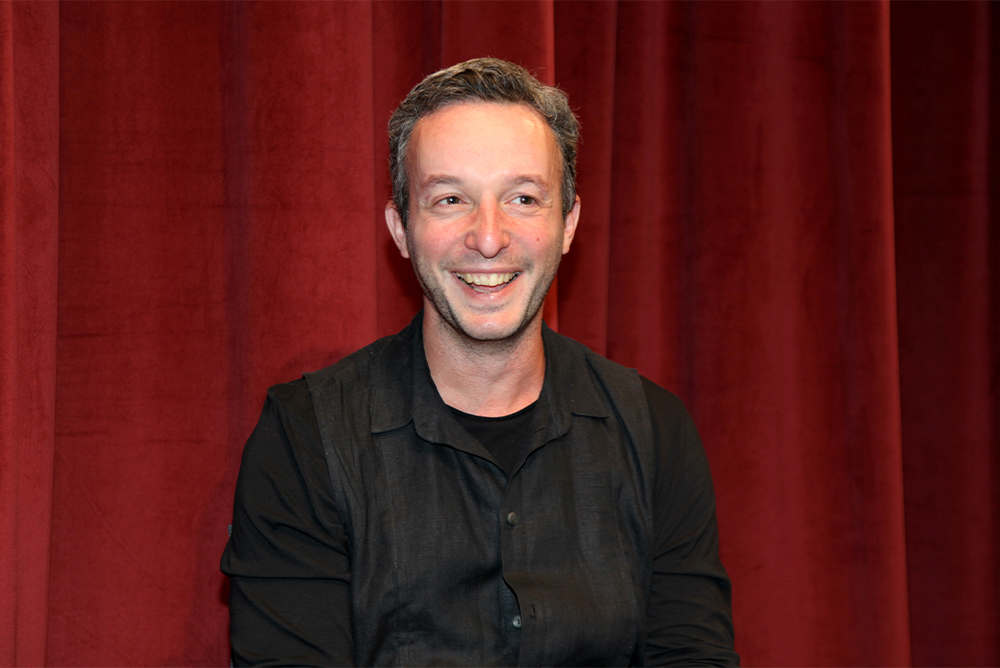
Photo by Aaron Salcido.
Evgeny Tonkha is a cellist who, since the age of 10, has toured Germany, France, England, Switzerland, Italy, Spain, and the U.S. His musical achievements include 1st Prize and the Golden Medal at the 12th International Cello Competition in the Czech Republic, the Special Jury Prize at the 13th International Tchaikovsky Competition, and prizes for the best performance of contemporary music. In advance of “How Immigrants Composed L.A.”—a Zócalo/Artistic Soirées event, presented in partnership with ASU Cronkite School of Journalism and Mass Communication— Tonkha joined us in the green room to talk about a concert that moved him, his passion for golf, and why Bach is the “god of composers.”
Where is your favorite place to perform?
It’s hard to say because every place has something special and it definitely depends on the program and partners on the stage. But acoustically, I would say Moscow Conservatory and Berliner Philharmoniker.
Controversial question: What is your least favorite instrument?
It’s really hard to say. Probably the flute. It’s a great instrument and everything, but I think it was Rossini who said: What can be worse than a sonata for the flute? A sonata for two flutes!
Who is your favorite historical composer?
Well, of course, it’s Bach. It’s really hard to understand him. It’s really hard to play him as well because his music is somewhere in space—it’s too huge. It’s impossible to have a conception of the entire universe, right? Bach is like a universe. The more you play it, the more you work on it, the more you listen to it, the more you understand those areas, more and more and more and more, and it’s endless. So he is, for me, and I think in general, he is god of the composers.
What is your favorite thing to do outside of music?
Playing golf. It’s an incredible addiction. And I have a very emotional connection to it. Because when I was 10 years old—I grew up in Moscow in Russia—it was 1991, the famous time of the collapse of the USSR, and they started to build a golf course a couple of blocks from my house. And we spent a lot of time there. And when I came here, there were many beautiful courses, so I started to play, and I’m really addicted. It’s a great game. I love it.
What’s your favorite thing to do in Moscow?
When I am in Moscow—not now, unfortunately, but before—just meeting friends and playing concerts. It’s a different feel. And I can breathe a little different because I can speak my language and meet my friends who I haven’t been in touch with for a while. It’s just great to be with my family and so on. It’s you know, it’s your roots. A powerful place, I would say, is the house where I was born. My father still lives in the same place, which is great. When I’m coming there I am finding notes from when I was 10 years old or something; I’m somehow connected with myself in the past, and it’s a great feeling.
If you could time travel to any time or place, where would you go, and why?
I would go 2022 years ago, to see Jesus Christ. Seriously—this person, if we may call them a person, is the most interesting person in history.
What’s the last thing that inspired you?
I can say the concert of Vadym Kholodenko. It was an absolutely outstanding concert. It was just one of the concerts I think I will remember for a long, long time. There are very few performances and very few concerts that I remember all the time. Some magic happens there. It’s what music is about. To make this magic, to change something, and maybe to somehow explain through the sounds that there is something else—not just like food and fun and bills—there is something more.



